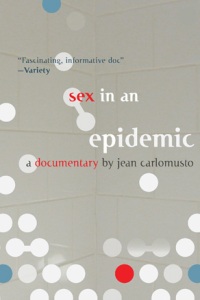On December 1st, Showtime, the network that debuted hits, such as “Dexter,” “Californication,” and “Nurse Jackie,” participated in a World AIDS Day celebration. As a part of its marathon, the documentary “Sex in an Epidemic,” by Media Arts Department Professor Jean Carlomusto was aired.
“Sex in an Epidemic” is a historical account of the varying social, sexual and political reactions to the disease’s spread and the way it transformed how Americans thinks about sexual practices, with the creation of the “safe sex” concept.
“The documentary has resonance,” said Professor of Media Arts and Director of the Television Center Jean Carlomusto. “We are talking about HIV prevention at a time when over 50,000 new cases are happening every year. That doesn’t have to be. The drugs can make you sick; they can cause complications, and they are going to be a lifelong hassle to maintain your drug treatment.”
World AIDS Day, established in 1988, is held yearly on December 1st. It is an opportunity for people to unite in the fight against HIV, to show their support, and to commemorate those who died. According to World AIDS Day, an estimated 33.3 million are infected with HIV worldwide. It is one of the most destructive pandemics in history, which has led to over 25 million deaths.
“One of the reasons I made this tape was for my students,” said Carlomusto. “I don’t think it is easy to imagine how bad it was not too long ago. I got the idea for the project when I started working as a volunteer at Gay Men’s Health Crisis in 1985. I used Final Cut to cut this piece and that is exactly the technology I teach. The camera is similar. The technology that I work with is essentially the technology I teach advanced students.”
C.W. Post Information sent out a campus-wide email on December 1st, informing students and staff about the showing. However, Showtime is not available on campus; a subscription is necessary. Subsequent airings will continue on Sho 2, Showtime Showcase, and Sho Women throughout December and January.
“I am pleased that Showtime chose to air it,” said Carlomusto. “Because the film has some sexual content, it was a little bit harder to get onto a PBS. My only regret was that not everybody has Showtime. My distributor, Outcast Films, arranged the deal. They showed it to Showtime; Showtime expressed interest and gave me a letter of agreement. Basically, my job once I got that letter of agreement was to secure the rights and to get all the necessary insurance for it to air on cable. It was a summer of hell. I love the creative part of making films, but if you are going to show a documentary, especially for broadcast, you have to make sure that you have proper licensing for your footage.”
Although Carlomusto had the idea to make the documentary since 1987, she did not actively start making the tape until about seven or eight years ago. Much of the material came from her archives.
“It’s a pleasure to work with someone who follows her passion and gets to pass it along to her students,” said Adjunct Professor of Electronic Media and Coordinator of the Television Center, Katherine Betka. “After all these years, I am still learning from Jean. I am sure our Broadcasting students feel proud that their full-time faculty members work hard in their fields and get to show their work on such a big platform.”
Professor’s Documentary airs on Showtime
More from NewsMore posts in News »




Be First to Comment